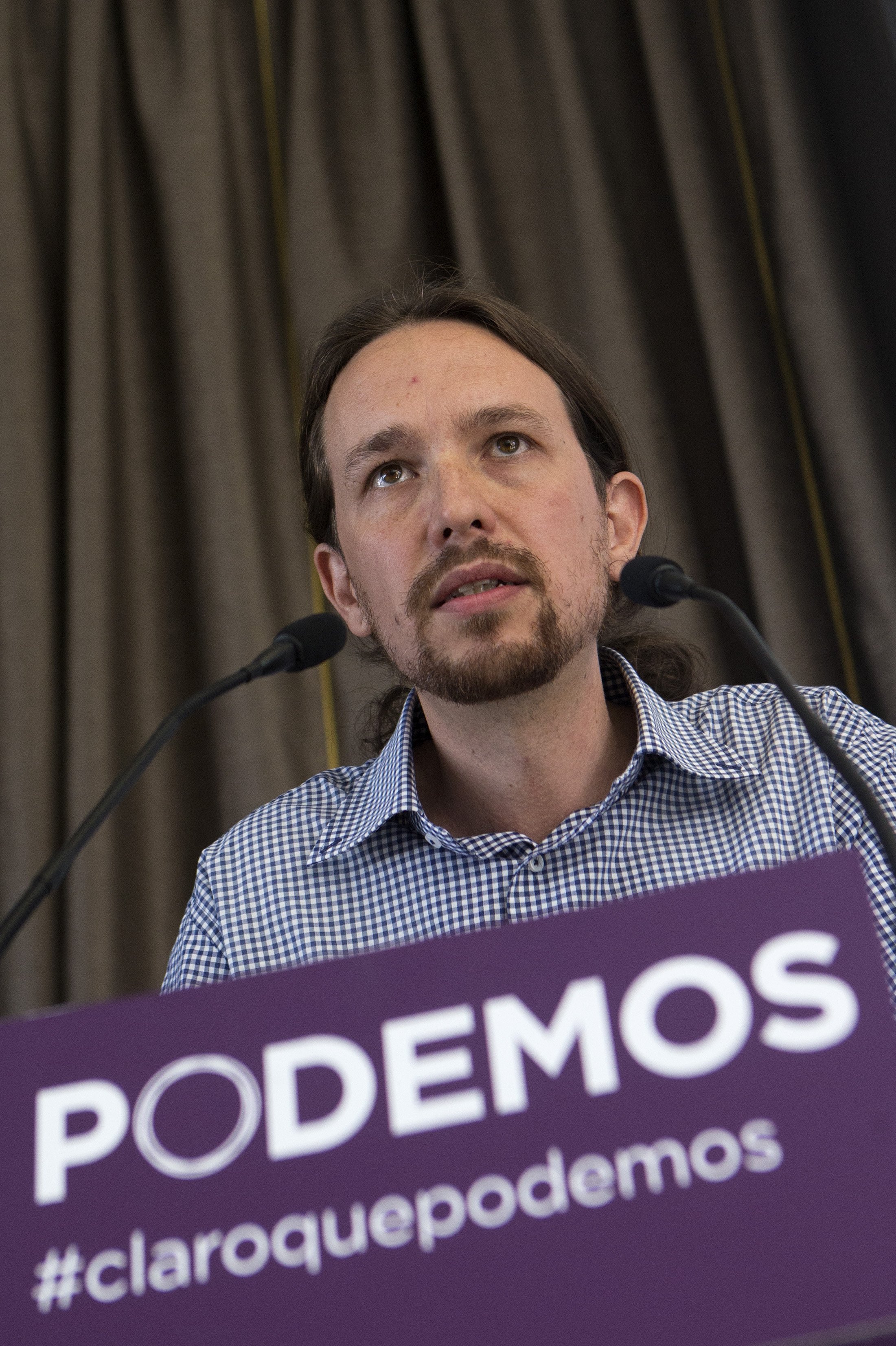
If there is one country in Europe where the fallout of the Sunday’s election result in Greece is felt most keenly, it is Spain.
Like in Athens, the government in Madrid has relied on a European bailout to support the economy and it has suffered from high unemployment, a large budget deficit and deteriorating living conditions.
What worries the administration of Prime Minister Mariano Rajoy most, is, like in Greece, the presence of a start-up political party whose aim is to take on the establishment and upset four decades of political homogeneity.
Podemos, which translates as “We Can,” was formed almost a year ago, and in some polls is already equal with the centre-right governing Popular Party and the opposition Socialists. Rajoy was so concerned that a victory for Podemos’s ‘sister party’ Syriza in Greece would provide a boost for Podemos in Spain that he travelled to Athens to support the then Greek prime minister, Antonio Samaras, before last Sunday’s poll. The Podemos leader, Pablo Iglesias, responded in kind by making an appearance at Syriza’s last election rally, alongside Alexis Tsipras.
“Many things unite the Greek and Spanish people to lead a new European project,” Iglesias told a rally in Valencia on Sunday. “They’ve wanted to look down on us as ‘Mediterraneans.’ They’ve called us ‘PIGS [an acronym for Portugal, Italy, Greece and Spain].’ They’ve wanted to turn us into a periphery. They want us to be countries of cheap labour forces. They want our young people to be the servants of rich tourists. Today we say that we are proud to be from the South, and that from the South we are going to return to Europe and to all its peoples the dignity that they deserve.”
Podemos currently has few policies in its manifesto although it promises to prepare a program for government before the elections. Last year it announced plans to lift wages, pensions and public investment and re-negotiate Spain’s debt. In 2015, the government proposes to sell $305 billion of bonds and bills to cover its spending.
Since the vote in Athens, Rajoy has sought to play down the implications for Spain of Syriza’s victory in Greece. He has warned Spaniards ahead of elections later this year that Podemos represents a huge risk and a return to uncertainty as the Spanish economy slowly improves. “Spain cannot afford to go back in time or leap into the void. We cannot throw overboard the sacrifices made by so many Spaniards,” he said.
On the surface, Podemos and Syriza seem similar but there are key differences. Podemos’s rise cannot be about economics alone. According to Spain’s National Statistics Institute, unemployment in the fourth quarter of last year stood at 23.7%, stubbornly above the average since the end of the Franco-era dictatorship. But it is gradually falling and growth has returned. In the fourth quarter of last year, growth was 0.5%, but it is positive and is forecast to improve throughout the year.
The message from Podemos is broader and not just about attacking the financial constraints imposed by Brussels. Spain received just a fraction of the bailout money taken by Athens to prop up its banking system via a mechanism it has now left. The Spanish government has not had to wear the fiscal straitjacket imposed on the Greek governments of recent years.
“There are evident differences [between Podemos and Syriza]. In Spain, like in much of southern Europe, there is a general dissatisfaction with political establishment. The economic situation [compared to Greece] is not as bad,” says Antonio Barroso, of the think-tank Teneo Intelligence. “Podemos has sought to exploit the gap that has been created by a desire for change among the Spanish electorate.”
As much as Angela Merkel, the German Chancellor and Mario Draghi, the head of the European Central Bank attract Iglesias’s ire, under most scrutiny is what he describes as ‘La Casta’ — the political establishment. And while it is trying to usurp the Socialists on the left, Podemos is also at pains to highlight a corruption scandal engulfing the governing Popular Party. The party’s former treasurer, himself on bail awaiting trial, now accuses Mr Rojoy directly of knowing about the presence of slush funds that benefitted the party and its leaders, an allegation Rajoy denies.
At the same time, the King’s sister, Princess Christina, is due to stand trial on charges of tax fraud, becoming the first Spanish royal to face criminal prosecution. It all adds up, Podemos claims, to a political system that is corrupt and ripe for change.
“It is difficult to know exactly what they want, beyond power,” says Barroso of Teneo Intelligence. “Podemos is not competing in many of this year’s municipal elections because it does not want to show its hand. It saw an opportunity in terms of the dissatisfaction with the political system and took advantage of that juncture. Indeed, most people still see it as a left-wing party, but slowly it is moving from the extreme left to something that looks more like a social democratic party.”
Podemos, a coalition of leftists, the poor, intellectuals and the disaffected middle classes, is due to hold a rally in Madrid on Saturday, the start of the countdown to change, it says. Iglesias likes using the imagery of ticking clock, “tick, tock, tick, tock,” he says in interviews. The message is clear. His time is coming, and that of the Spanish establishment is running out.
More Must-Reads from TIME
- Donald Trump Is TIME's 2024 Person of the Year
- Why We Chose Trump as Person of the Year
- Is Intermittent Fasting Good or Bad for You?
- The 100 Must-Read Books of 2024
- The 20 Best Christmas TV Episodes
- Column: If Optimism Feels Ridiculous Now, Try Hope
- The Future of Climate Action Is Trade Policy
- Merle Bombardieri Is Helping People Make the Baby Decision
Contact us at letters@time.com